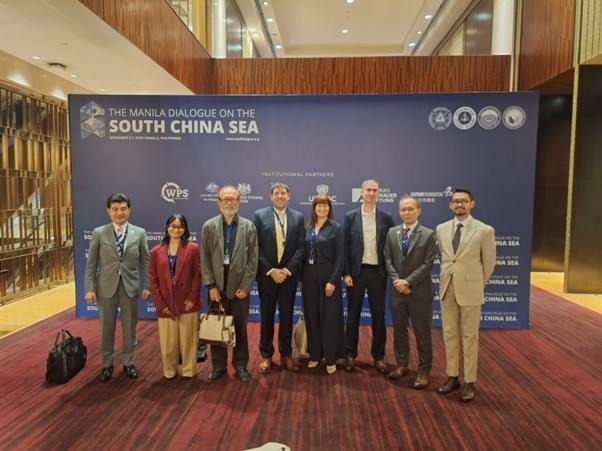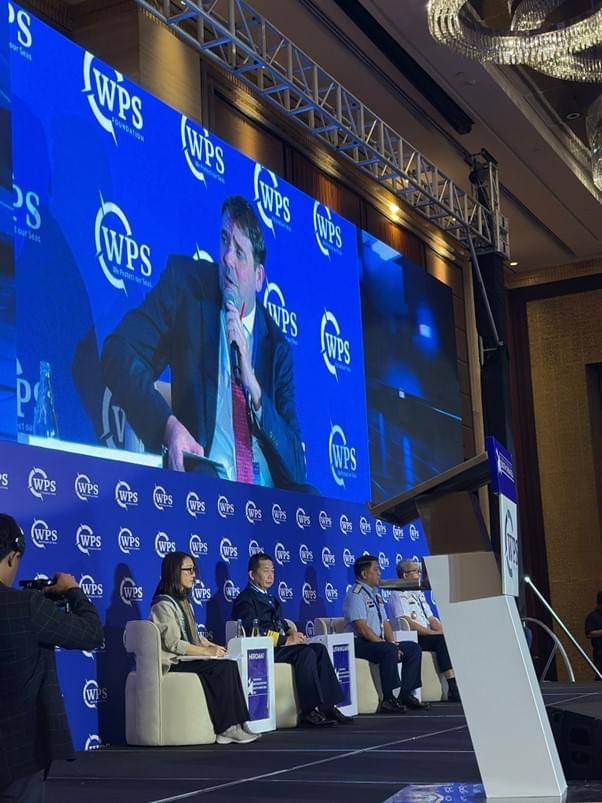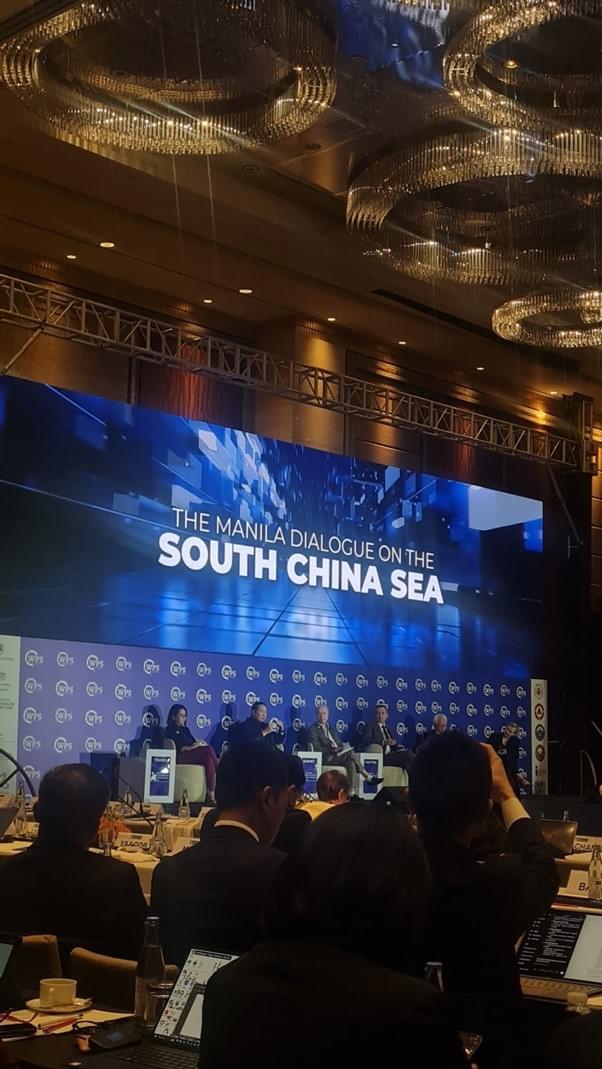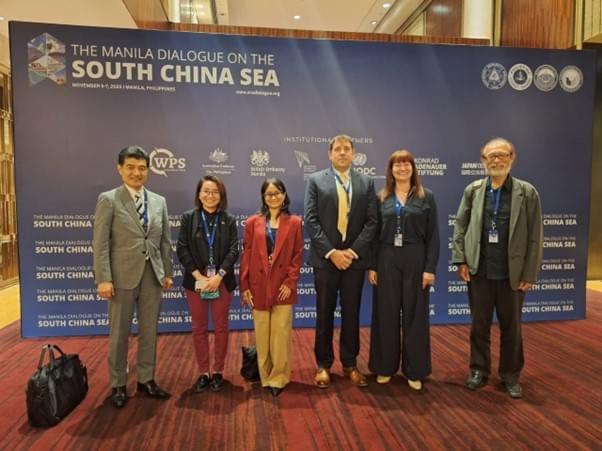YCAPS played a key role in the Manila Dialogue on the South China Sea 2025, serving as an event co-sponsor and bringing a delegation of 10 people. This international event was held in
Bonifacio Global City, Manila, Philippines from November 5-7, 2025.
The Manila Dialogue on the South China Sea 2025 was convened by We Protect Our Seas (WPS)
with direct support from the Philippine Coast Guard, West Philippine Sea
Transparency Group, the National Security Council of the Philippines and several
embassies and non-profits to include YCAPS.
YCAPS also organized a social networking event on the Dialogue’s sidelines where more than
20 delegates came together to reflect on the proceedings and develop opportunities
for further collaboration.
This year’s dialogue explored a wide range of issues, beginning with an overview of the
decades-long history and negotiations among South China Sea claimant states.
Subsequent sessions delved into historic territorial claims, adherence to
international law, the concept of the SCS as a global commons, the spread of
disinformation, the impact of maritime tensions on regional economies, dispute
management, the institutionalization of regional cooperation mechanisms, and
maritime capacity-building in the Indo-Pacific. Across three days, the panels
featured representatives from the coast guards of several claimant states,
members of the diplomatic community, academia, think tanks, and maritime
experts. All of the sessions can be viewed on YouTube.

8 members of the YCAPS delegation (left to right): Michishita Narushige (Director, YCAPS Japan), Isabel Santiago (volunteer), SATO Yoichiro (Senior Research Fellow), John Bradford (Executive Director), Annette Bradford (Advisor for Education and Policy), Benjamin Blandin (Research Fellow), Furuya Kentaro and Aritsyo Darmawan.

John Bradford, YCAPS’ Executive Director, chaired one of the plenary sessions titled “Maritime
Capacity-Building for a Rules-based, Equitable and Sustainable Maritime Order
in the Indo-Pacific”.

Key highlights of the discussions included the absence of legal frameworks addressing emerging challenges such as subsea infrastructure sabotage, the continued importance of
upholding a rules-based international order, and ongoing negotiations for a
binding and enforceable Code of Conduct in the South China Sea.

The recently concluded Dialogue continues to serve as a vital platform for addressing
maritime security challenges and the complex, and intersecting issues faced by
the Indo-Pacific region.